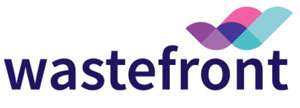 Norwegian waste tyre recycling company, Wastefront, says that one of Europe’s largest distributors of products for the rubber industry, Weber & Schaer has signed a strategic offtake and on-sale agreement for its recovered carbon black (rCB). The agreement secures Wastefront’s ground-breaking and fully circular supply chain for the UK’s end-of-life tyres (ELTs) and is for a minimum of 35% of the rCB produced at Wastefront’s £100 million Sunderland plant, with the opportunity to further scale up in the future.
Norwegian waste tyre recycling company, Wastefront, says that one of Europe’s largest distributors of products for the rubber industry, Weber & Schaer has signed a strategic offtake and on-sale agreement for its recovered carbon black (rCB). The agreement secures Wastefront’s ground-breaking and fully circular supply chain for the UK’s end-of-life tyres (ELTs) and is for a minimum of 35% of the rCB produced at Wastefront’s £100 million Sunderland plant, with the opportunity to further scale up in the future.
By manufacturing renewable fuels from ELTs and rCB to produce new tyres, alongside the rubber and plastic products produced by Weber & Schaer’s clients, Wastefront’s mission to create a Green Global Industrial Platform is now close to complete. ??Specialising in rubber, carbon black, plastic and adhesives distribution, Weber & Schaer has nine warehouses in Europe – in Austria, Belgium, France, Germany, Italy, the Netherlands and Spain – ensuring Wastefront’s ELT solution benefits the global circular economy as they expand into new markets and increase capacity.
The domestic production of rCB is vital given the EU sanctions limiting imports of carbon black from Russia. A sizable amount of the carbon black utilised in Europe is produced in Russia, Ukraine, and Belarus (around 700,000 tonnes of carbon black is exported from Russia alone each year).
According to a 2022 report by Fortune Business Insight, the global carbon black market is projected to grow from $13 bn in 2022 to $18 bn by 2029.
Since its inception, Wastefront has signed pivotal agreements to develop an entirely new, global circular supply chain. Notably, Wastefront signed agreements in 2020 with energy and commodities company Vitol for a 10-year offtake agreement for the production of liquid hydrocarbons and certain non-liquid products, and in 2022 with French engineering and technology company Technip Energies, as its engineering, procurement and construction partner for the Sunderland plant buildout.
Additional agreements have been signed with Gateway Resources, an independent trading house that is involved in the procurement, logistics, financing and distribution of a diverse portfolio of commodities pertaining to the manufacturing and recycling industry, and to guarantee the supply of ELTs and an offtake agreement with UK-based electric vehicle tyre manufacturer ENSO, to provide a recycling outlet for its used tyres.
As such, Wastefront has now built a blueprint ready to scale beyond the Sunderland plant with a Green Global Industrial Platform and is set to offtake and on-sale of their rCB globally.
In addition to Wastefront’s work to complete its circular supply chain, the company is also undertaking key R&D initiatives with partners including Hulteberg and Newcastle University to further optimise their processes.
HYFUEL, in partnership with Hulteberg, a Swedish chemical engineering company, is a groundbreaking oil purification project dedicated to developing a novel catalyst approach to purify pyrolysis oil extracted from ELTs creates biofuels from tire derived oil (TDO), while together with Newcastle University Wastefront is undertaking a study into the characterisation and enhancement of Wastefront’s rCB.
Wastefront uses pyrolytic reactors that utilise thermal depolymerisation known as ‘pyrolysis’ to break down a tyre’s materials at elevated temperatures. By sending tyres through these reactors, rCB is produced, in addition to combustible gas, liquid hydrocarbon, and heat. The carbon black is then washed and milled to upgrade the chemical properties and used as a reinforcement for natural rubber in tyre production, mechanical rubber goods or as a filler for plastics.
Once fully operational in 2025, Wastefront’s £100 million tyre recycling plant in Sunderland will produce rCB from a supply of 20% of the UK’s yearly total of ELTs. By integrating Wastefront’s rCB into new tyres, the emissions for each tyre subsequently produced will be reduced by 80%.
Wastefront’s Sunderland plant alone will process around 80,000 tonnes/year of ELTS once at full capacity, mitigating pollution generated by landfilling or incinerating tyres and eliminating emissions of 1,800,000 tonnes of CO2 over its lifetime. The plant will generate its own sustainable power, further aiding the reduction in emissions, and produce useful low carbon fuels for maritime transportation, alongside rCB.
